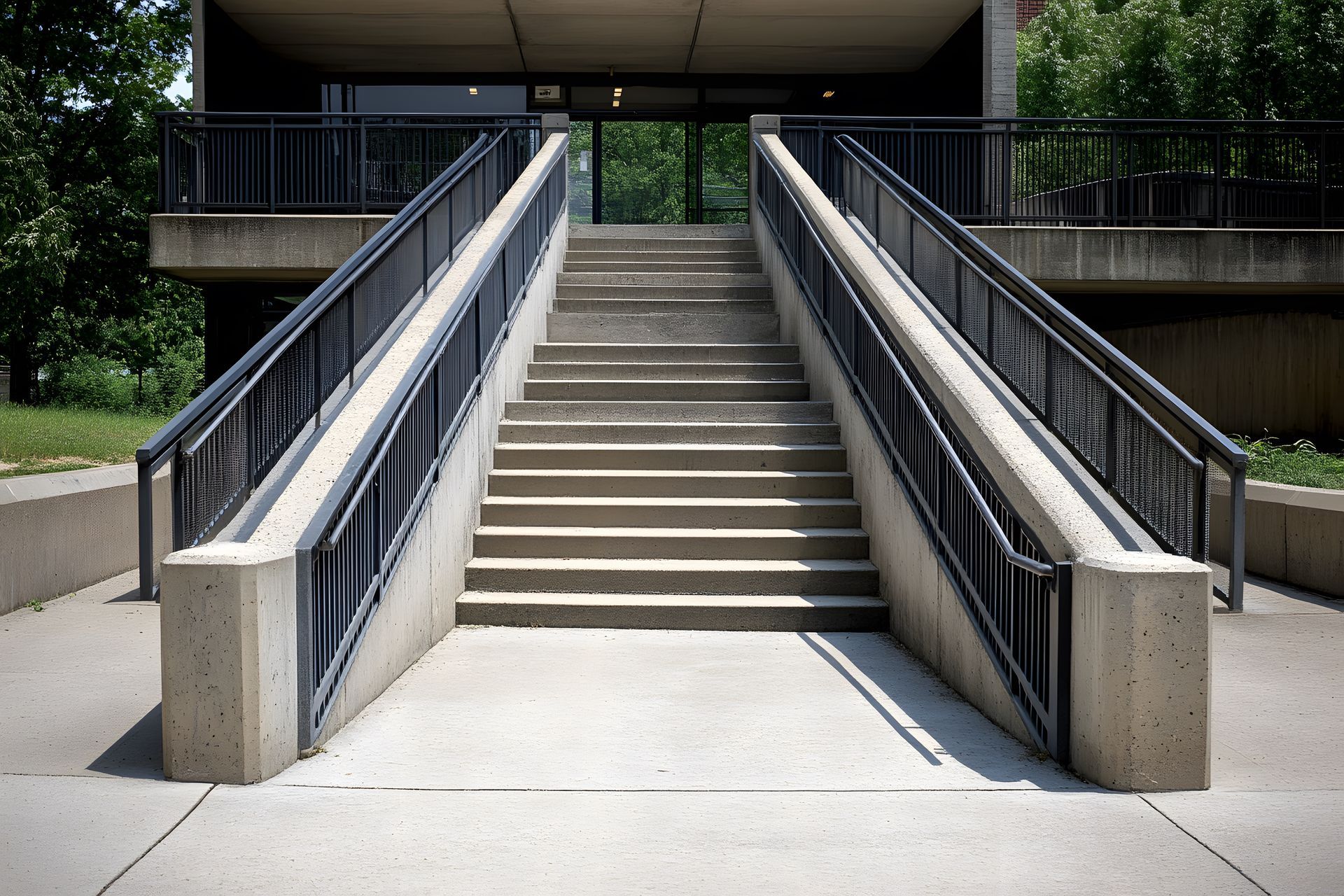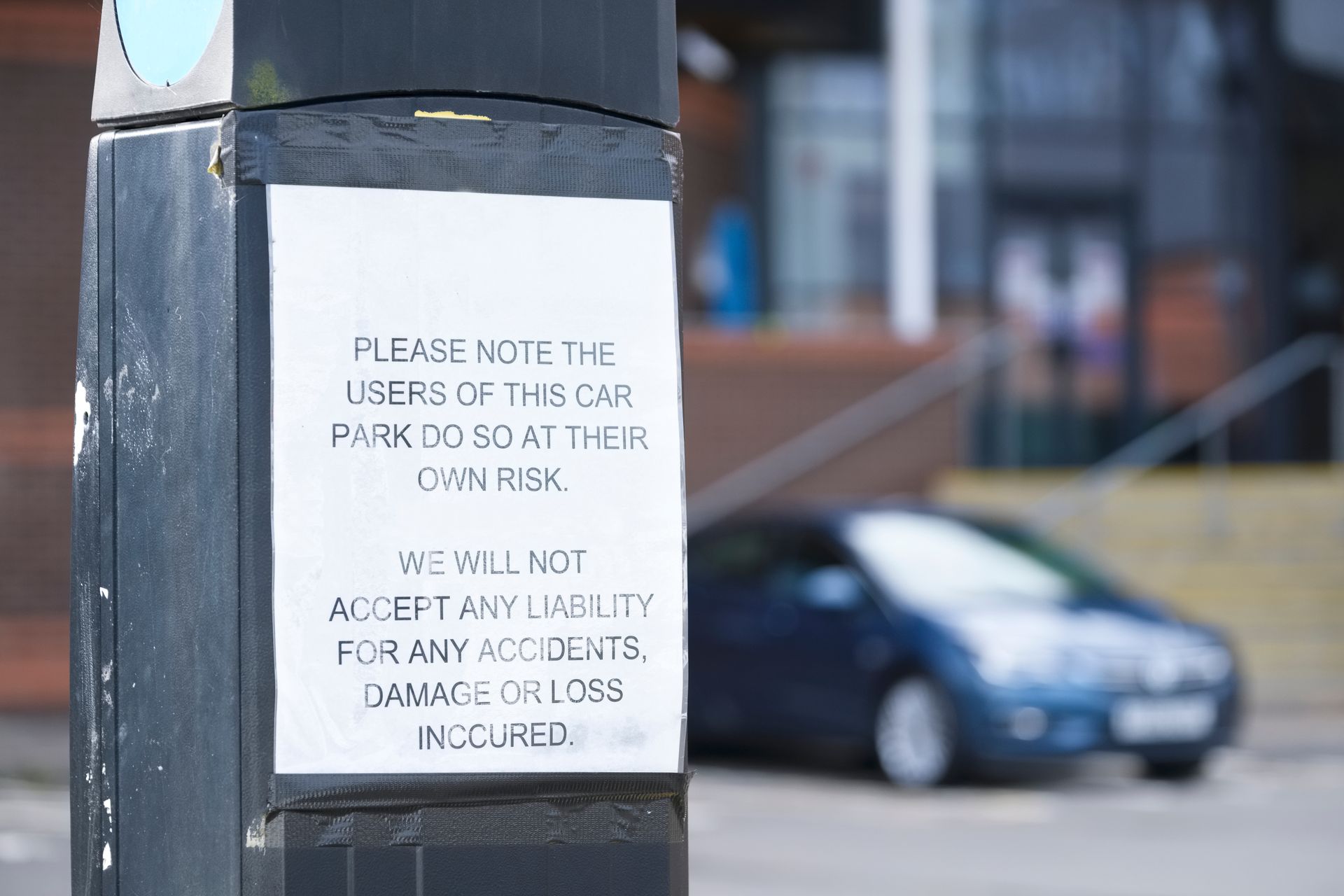Blog

The Americans with Disabilities Act (ADA) is a crucial law designed to provide equal access for individuals with disabilities. However, since the early 2000s, there has been a rise in demand-letter-driven lawsuits that exploit the ADA for financial gain rather than genuine accessibility concerns.
Many small businesses and property owners have found themselves targeted by serial litigants and law firms that file multiple lawsuits in quick succession, often without prior notice or an opportunity to correct alleged violations. Defending against these claims can be costly and time-consuming, but there are proactive steps businesses can take to protect themselves.
The Rise of Frivolous ADA Lawsuits
While the ADA serves an important purpose, some individuals and legal groups have turned it into a tool for generating settlements rather than achieving real compliance.
These lawsuits often follow a similar pattern:
- A plaintiff (often a frequent filer of ADA lawsuits) claims to have visited a business and encountered an alleged accessibility violation.
- A law firm sends a demand letter, threatening legal action unless the business agrees to a monetary settlement.
- If the business does not settle quickly, a lawsuit is filed, often seeking damages, attorneys’ fees and court costs.
In some cases, the alleged violations are minor, such as a sign being an inch too low or a parking space missing freshly painted markings. Other lawsuits are based on technicalities or involve plaintiffs who never actually visited the business in question. Because these cases are expensive to fight, many businesses opt to settle, even if they believe the claims are exaggerated or unfounded.
Steps Businesses Can Take to Protect Themselves
Although some states, including California and Florida, have passed reforms to reduce the frequency of frivolous ADA lawsuits, Georgia has not. There have been occasions where Georgia courts have dismissed cases for lack of standing if the defendant can show the plaintiff never intended to use the business they were targeting, but that’s not a guaranteed defense strategy. Proactively addressing ADA compliance can help businesses avoid lawsuits and strengthen their defense against frivolous claims.
1. Conduct an ADA Compliance Audit
The best way to prevent lawsuits is to ensure your business remains fully compliant with ADA regulations. Hiring an accessibility expert or ADA consultant to review your property can help identify and fix any potential issues before they become legal liabilities. This audit should cover:
- Parking lots and accessible spaces
- Entryways and door widths
- Signage and wayfinding
- Restroom accessibility
- Counter and table heights
2. Make Reasonable Modifications and Keep Records
If an accessibility issue is identified, take corrective action as soon as possible. Keep detailed records of any modifications made, including dates, costs and before-and-after photos. If a lawsuit arises, demonstrating a good-faith effort to comply with the ADA can serve as a strong defense.
3. Train Staff on ADA Compliance
Employees should be aware of ADA requirements and how to accommodate customers with disabilities. Training should cover:
- Proper use of accessible parking spaces
- Assisting customers with mobility challenges
- Handling service animals appropriately
- Communicating with individuals who have hearing or vision impairments
4. Watch for Serial Litigants
Some individuals and law firms are known for filing multiple ADA lawsuits. If your business receives a demand letter, research the plaintiff to see if they have a history of similar claims. If they do, you may be dealing with a professional plaintiff who is primarily seeking a settlement rather than genuine compliance improvements.
5. Respond to Demand Letters Carefully
If you receive a demand letter alleging ADA violations, do not immediately agree to a settlement. Instead:
- Consult with a business litigation defense attorney experienced in ADA litigation.
- Request specific details about the alleged violations.
- If necessary, conduct your own inspection to verify the claims.
- Consider offering to make reasonable modifications rather than paying a settlement.
6. Maintain ADA Compliance Documentation
Having documentation on hand that proves compliance can be a key defense in court. Keep records of:
- Past accessibility audits
- Corrective actions taken
- Employee training sessions
- Correspondence related to ADA compliance efforts
Legal Defenses Against Frivolous ADA Lawsuits
If your business is sued under the ADA, there are several potential legal defenses, including:
- Standing: The plaintiff must prove they personally experienced the alleged violation or were genuinely deterred from visiting the business.
- Mootness: If the issue has already been corrected, the lawsuit may be dismissed as moot.
- Good Faith Effort to Comply: Demonstrating ongoing compliance efforts can persuade courts to rule in favor of the business.
- Abuse of Process: If a plaintiff is found to be filing lawsuits for profit rather than genuine access concerns, the court may dismiss the case or sanction the plaintiff.
Facing an ADA Lawsuit? Get Legal Protection for Your Business Today
If your Atlanta business is facing an ADA lawsuit or wants to take steps to prevent one, our experienced business liability attorneys at the Law Office of Cameron Hawkins are here to help.
Contact us today here on our website for a consultation or give us a call at (678) 921-4225 and protect your business from unnecessary legal risks.
Law Office of Cameron Hawkins | All Rights Reserved
Areas of Practice
Contact Info
Disclaimer: The content on this website is for informational purposes only. This site and the information contained within is not legal advice, nor is it intended to be. Contacting the Law Office of Cameron Hawkins does not create an attorney-client relationship. Internet users should not act upon information contained on this site without first seeking advice from an attorney. Please refrain from sending any confidential information to The Law Office of Cameron Hawkins until an attorney-client relationship is established.
Disclaimer pursuant to Georgia Rule of Professional Conduct 7.1(a)(6): The statement "no attorneys' fees unless we are able to secure a verdict or settlement on your behalf" refers only to those fees charged by the attorney. Court costs and other additional expenses of legal actions usually must be paid by the client. Contingent fees are not permitted in all types of cases.











